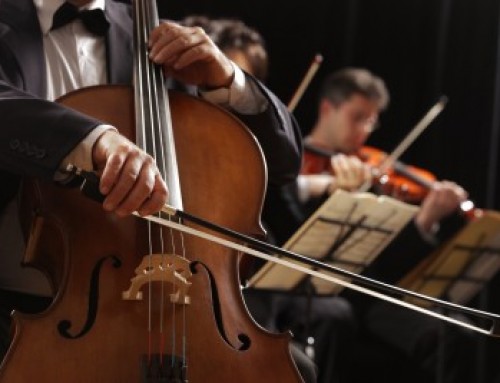How Music Enhances Your Film Production
by Adam Krell
When you’re putting together a film production, music is an essential element. A great accompanying score can take your production to the next level. Think of memorable feature films with scores equally as memorable: “The Last of the Mohicans,” “Jaws,” even the “Harry Potter” movies.
No matter what type of production you’re involved with, music can’t be overlooked. It has the power to make or break your production.
A Quick History of Music in Film
Before films, music accompanied plays. Early Greeks and Romans used choruses in their dramatic plays, as did Shakespearian plays during the Renaissance. Other cultures used music as well. One example is Japanese Kabuki theater. With early silent films, a pianist or a group of musicians frequently played live music to bring another dimension to the cinematic experience.
Camille Saint-Seans created what is believed to be the first film score composed for a film in 1908. Sound was introduced to motion pictures in the movie “The Jazz Singer” in 1927. Soon, musicals became popular — then technology advanced even more. Now, music plays a role in nearly every film produced.
Types of Music in Film
• Underscore. This is the background music. It usually is the majority of the music in a film. It might be used under dialogue or during chase scenes to set the mood.
• Pre-existing songs. Pre-existing songs can be used in films. Producers obtain permission from music publishers to use songs.
• Songs made for the film. Composers create new songs for the particular film.
• Silence. The absence of music has an effect as well. It can give a scene significance and create tension.
How Music Functions in Film
According to one study, when the effect of images was compared to the effect of images and music, music and images evoked more emotional feelings. On the other hand, images evoked a more cognitive experience. Other studies have demonstrated the emotional and even healing powers of music.
In movies, music is used mainly for these reasons:
• To create character and show the emotional states of characters.
• To express action.
• To develop atmosphere.
• To illustrate movement.
• To generate unreal situations.
• To psychologically unite audiences.
Music can also smooth scene transitions, especially when scenes change locations. Themes can be used to establish connections between characters and to create cohesiveness.
Music is usually a background element in film for most of the time, yet its importance is undeniable.
At Aurora Coast Productions, our award-winning team produces quality music productions for films and other projects. We have in-house composers to make the process easy for you. Our specialty is emotional and thematic music. Whatever your needs though, we can bring it to your production. Contact us today.


